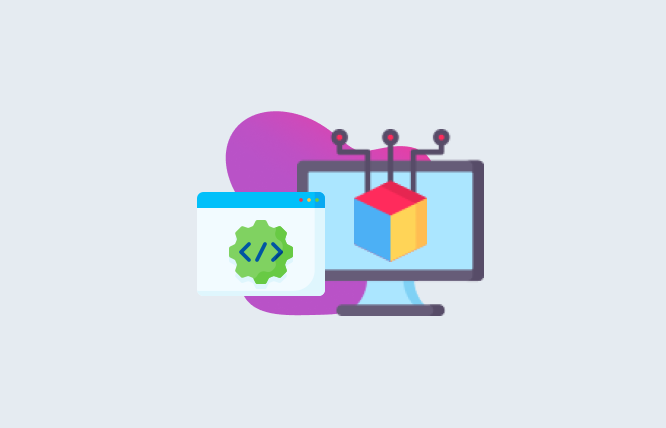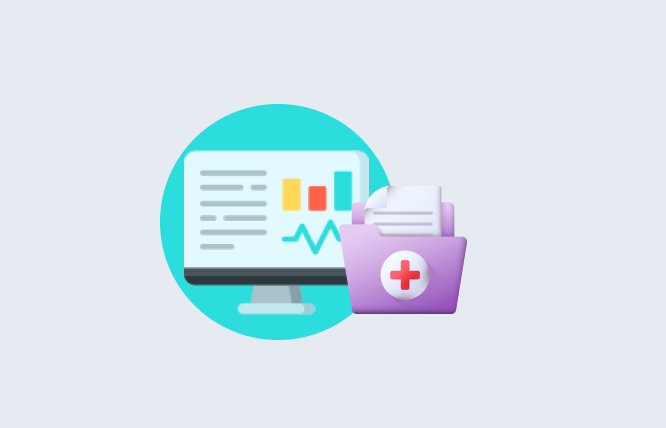Introduction
ERP Accounting software are readily available in the market today but it is important to pick the right one. This article will discuss the factors you need to keep in consideration when choosing an ERP system for your financial organisation and a quick comparison on whether you should get a custom ERP system developed by an expert.
Enterprise Resource Planning (ERP) systems have made a significant impact on businesses across various industries. According to a study conducted on LinkedIn, 31% of businesses are employing the help of ERP systems. This is taken a step forward with ERP accounting software.
A survey conducted by BDTask found the highest usage of ERP systems is found in the financial sector with 13.8%, while 53% of financial institutions are considering investment in an ERP accounting software as their top priority.
In this article we will discuss the importance of an ERP system in the financial sector, what to consider when choosing an ERP system and how custom ERP software development can help your business improve efficiency within operations.
ERP and Its Importance In Financial Sector
Before we can look at the factors that impact the choice of an ERP, the first thing to learn is what an ERP is and what it does. In the simplest way possible, ERP systems are a business managment solution that manage the day-to-day business activities within an organisation of any industry. These activities can range from finances, transactions, procurement, supply chain and even compliance with regulations. In other words, ERP is a centralised system that improves the flow of organisational processes.
In today’s world, ERP is seen as a vital part for any organisation that is looking to streamline their processes and eliminate bottlenecks. This is especially important for businesses in the financial industry.
With millions of transactions happening on a daily basis, financial institutions are tasked with staying, compliant, accurate and efficient. When dealing with monetary gain and loss, the slightest instance of human error can sometimes have catastrophic effects. This is why systems such as ERP accounting software are necessary to mitigate the risk of these human errors and improve operations.
Following are the reasons as to why having an ERP system is important in the financial sector:
- Speed up processes and time needed to generate reports
- Gain improved accuracy and visibility
- Streamline consolidation amongst companies
- Simplify financial operations
- Gain meaningful insight with centralised data
- Optimise cash management
- Integrate with other systems to improve processes
What To Look For In An ERP Accounting Software
There are several ERP systems in the market today, each geared towards specific business mangement solutions, processes or industries. With a large selection, it is often difficult to determine which one will work best for your business.
Following are the factors you need to take into consideration when choosing an ERP accounting software for your financial firm.
Business Requirements
The first aspect to consider is why your business needs an ERP system. The best way to do so is by creating a list of requirements your business needs the ERP system for. This can be done by communicating with different departments of your organisation. You can also opt to create a requirement template which can breakdown your requirements into separate functionalities. This process will allow you to easily determine a choice when getting an ERP system integrated in your business.
Upper Management Support
While this is often overlooked within most organisations, it is paramount that you have the support of your upper management when implementing an ERP system in a financial institution. Before making a choice and implementing the system, you need to ensure that your upper management will support the new system and move on from the existing one. Failure to do this could result in undue issues for the organisation in the long run.
User Support
The next step is to ensure that the people that will be the most hands-on with the system are in support of its implementation. This again requires you to have clear communication with the stakeholders and employees about the use of the system and offer them substantial training about the system once it is implemented.
Functional Requirements
An ERP system can be extensive and there may be modules or functionalities that are irrelevant to your requirements. Before making a choice, it is essential to audit the functionalities each ERP system offers and if they are in line with your requirements.
Integration With Existing System
Businesses in the financial industry have data stored for a long time. Creating the same data store from scratch is a hassle which is why it is important, especially in the finance sector, to choose an ERP accounting system that can be integrated within the existing system. This will help your organisation stay up-to-speed without having to experience downtime.
Budget and Resources
You need to consider the budget you are allocating for the ERP system. ERP systems can greatly vary based on requirements, and it is important to have a clear budget before selecting. You will also need to consider the resources that will be using this system and the training they will need to be provided.
Scalability
As every business would, you want your organisation to grow. Keeping that in mind, you need a system that is futureproof and offer scalability in the future. With technology expanding on a daily basis, you need to get a system that will cater to your needs in the long-run.
Consider Other Costs
Selecting and implementing an ERP system is not as simple as making a one-time payment. There are several costs associated with its implementation. These can range from training costs, additional labour costs, consultation costs, network upgrade costs and more. Before making the purchase, it is important to be aware of all these costs and how it will impact your organisation.
Evaluate Your Options
Once all the pre-planning is done, you can start auditing the different options available in the market and evaluate your options based on your requirements and constraints. This needs to be a meticulous process as ERP accounting software implementation is not feasible repeatedly.
Necessary Customisation
It is rare to find an ERP system in the market that is perfectly suited to your needs and requirements. Often times you will need to customise or tweak the system in a way that it is more in line with your needs. Minor customisation should always be kept in consideration.
Are Custom ERP Systems Better Than Off-The-Shelf Systems?
There is an age-old debate on whether it is better to implement an ERP system that already exists in the market or get one customised from scratch. While it does depend on your company requirements, here is a comparison that discusses the benefits of each type of Enterprise technology solution.
| Aspect | Custom ERP Accounting System | Off-the-Shelf ERP Accounting System |
| Customisation | Highly customisable to fit specific business processes | Limited customisation options |
| Implementation Time | Longer implementation time due to customisation | Faster implementation time as it’s pre-built |
| Initial Cost | Higher initial cost due to development and customisation | Lower initial cost as it’s ready-made |
| Ongoing Maintenance and Support | Requires ongoing maintenance and support | Vendor provides maintenance and support |
| Scalability | Scalable to accommodate future growth and changes | Limited scalability, may require upgrades or add-ons |
| Integration with Existing Systems | Can be seamlessly integrated with existing systems | Integration may be complex and require additional work |
Training and User Adoption | Requires training and may have a learning curve | Generally user-friendly with minimal training required |
| Compliance and Regulatory | Can be tailored to meet specific compliance requirements | Compliance features are standardised |
| Updates and Upgrades | Updates and upgrades can be customised and controlled | Updates and upgrades are managed by the vendor |
| Vendor Lock-in | No vendor lock-in, full control over the system | Vendor lock-in, dependence on vendor for updates |
Conclusion
An ERP accounting system can make all the difference within your organisation when it comes to enhanced efficiency. That being said, selecting an ERP system is a vital task that need to be properly conducted.
If you are struggling to find an ERP system in the market that is tailored to your specific business needs, partner with FuturByte and get a custom ERP system made as per your requirements. FuturByte offers cloud application development services, and DevOps managed service providers. Contact us today for a free consultation.
Frequently Asked Questions
Have questions or feedback?
Get in touch with us and we‘l get back to you and help as soon as we can!





